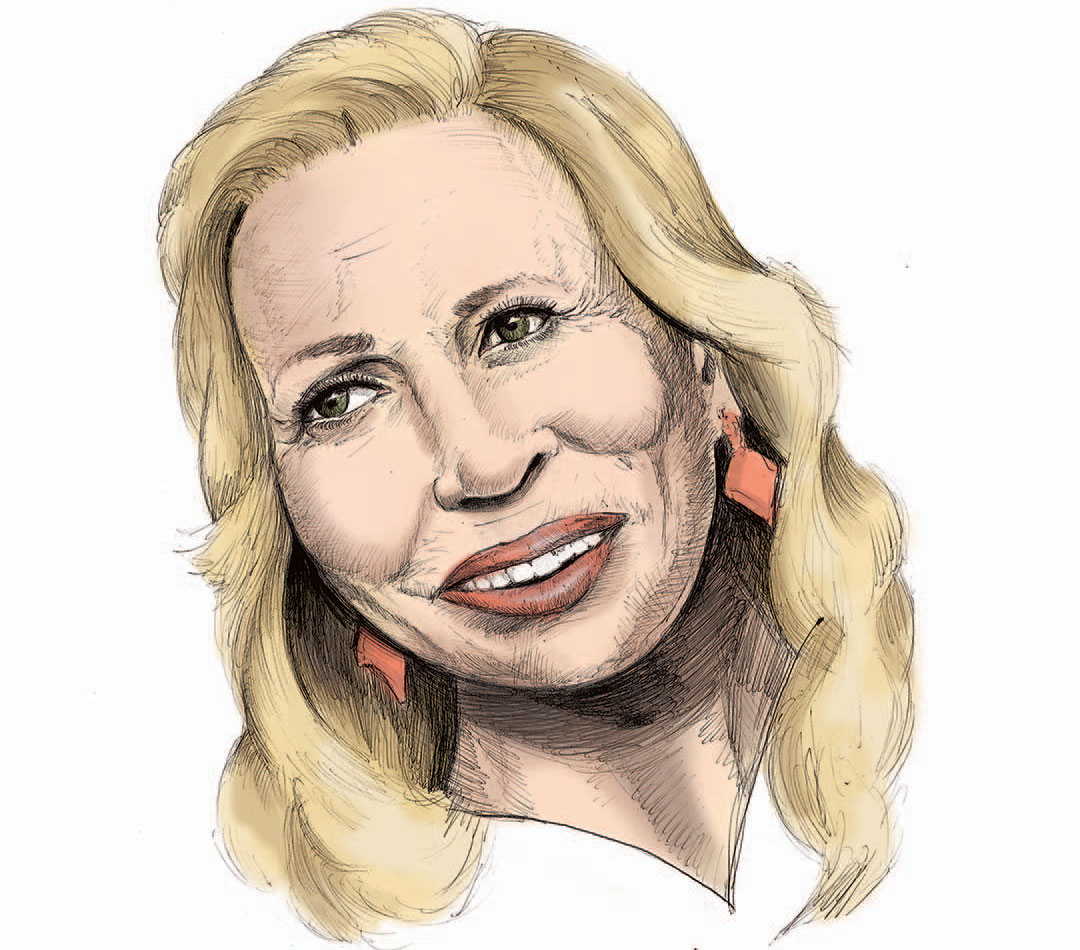
We sit down to chat with the legendary actress on the eve of the 50th anniversary of “Bonnie and Clyde.”
Cowboys & Indians: Bonnie and Clyde was released in 1967, a watershed year for American movies. Were you aware at the time that you were helping to usher in an era of less censorship and more artistic freedom?
Faye Dunaway: No, I don’t really think so. For me, it was just some incredible experience. We knew it was a good movie, and we knew that while working on the set. We knew each day something was happening that was special. But we could never have guessed that it would be the beautiful, classic film that it is. I’m very honored to be a part of it. Arthur Penn was such a great director. Warren Beatty — never underestimate Warren Beatty. It was just a great experience all around.
C&I: It’s been said your favorite scene in Bonnie and Clyde is the family reunion picnic, when Bonnie has what turns out to be her last chance to talk with her mother. Is that true?
Faye: Yes. I’ve been thinking a lot about that scene again, after seeing that film clip [during the DIFF tribute to screenwriter Robert Benton]. At first, I say something to the effect that I thought we were going somewhere, but now we’re just going. And then you see me running into the cornfield, crying and saying I want to see my family. And it leads to this foggy, kind of mystical place that you can’t quite touch, you can’t quite get into. It was a brilliant scene, really. [Benton] tried to tell me that was something that Arthur came up with, so I’m glad that that happened. That was a nice scene, a really special, poignant scene.
C&I: Would you say that — all things considered — Bonnie Parker really is the brains of the outfit?
Faye: [Laughs.] She is, yeah. She’s kind of the guts too.
C&I: The violent climax of the film, where Bonnie Parker and Clyde Barrow are gunned down by the police, is still quite shocking. When the day came to shoot that scene — did you dread it?
Faye: Oh, it wasn’t anything like that. I mean, it was intense. There were little charges sewed into my dress with invisible wires off camera, and they were detonated whenever the wires were pulled. I had to look like I was taking the impact of the bullets like that, so there was that dance of death. I think we had to do that twice, as I recall. But it was — well, if I’m honest, the whole notion of having to do the scene was not easy. Not because it was violent, but because it was very intricate.
C&I: It’s been said that Bonnie and Clyde clicked with many moviegoers in 1967 because it tapped into the rebellious, anti-establishment mood of the time. But back in their own time, the real Bonnie and Clyde were revered as folk heroes — like modern-day outlaws — by many people throughout the Southwest.
Faye: I think some of that had to do with all those pictures in the papers, and the stories about police trying to catch them and everything. It was that and their aspiration — their desire to be somebody and to get away from this terrible Depression Era life that they were living, when they didn’t have anything. No excitement, no love.
C&I: You later worked with director Arthur Penn on Little Big Man, a 1970 movie that he counted among his favorites. And you played quite the naughty lady in that one — a preacher’s sexually frustrated wife who becomes a prostitute.
Faye: [Laughs.] Mrs. Pendrake. She really was a delicious character. She just had all of this going on and really was very cool toward this young man [played by Dustin Hoffman]. When she was a preacher’s wife, she liked it when there was temptation, and she could feel naughty, I suppose. But when she didn’t like it, she literally became a prostitute, working in a brothel. It was a lovely part to play, because it had that dichotomy. And you could play those levels, where she’s very attracted to Dustin, and she can’t take her hands off him, and all that forbidden sort of thing.
C&I: And she eventually becomes a kind of outlaw.
Faye: Yes. Just like Bonnie.
THE SCENE OF THE CRIME: Faye Dunaway received the prestigious Dallas Star Award for Lifetime Achievement during the 2017 Dallas International Film Festival. Not incidentally, Bonnie and Clyde was filmed primarily in and around Dallas in 1967.
From the July 2017 issue.














